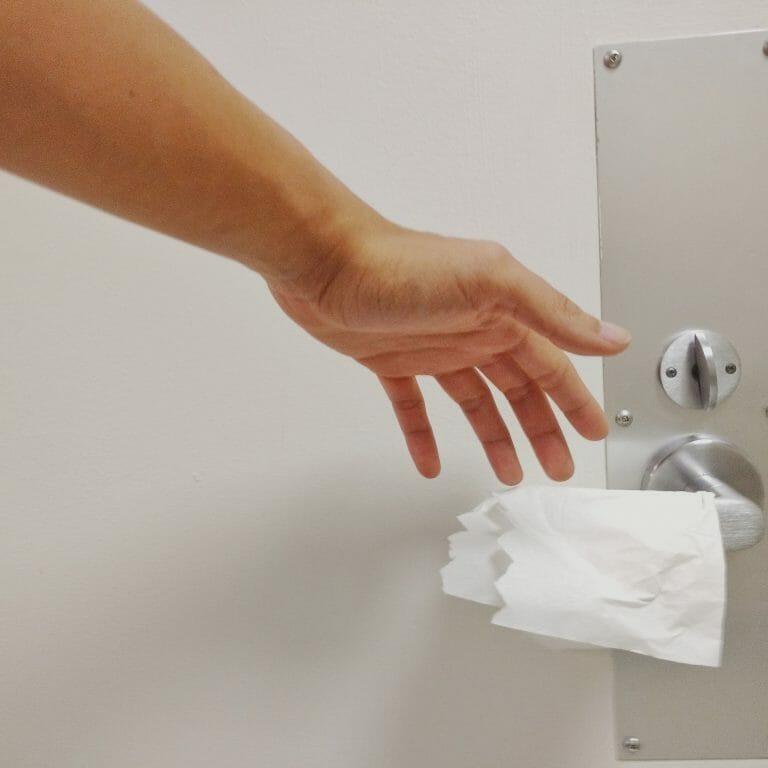
Stop normalizing OCD
It's not just liking things neat and tidy - it's a mental illness
OCD (obsessive compulsive disorder) is a mental illness that causes obsessive and compulsive behavior. It comes in many forms, and affects people in different ways. It is said to be one of the hardest mental illnesses to deal with because of the necessity of compulsions and the irrationality behind them. OCD doesn’t come alone; often, it joins forces with depression and/or anxiety.
OCD is not a habit or liking things to be neat and tidy. It’s not something you say when you’re chatting to your friends about having to get that picture perfectly straight on the wall or when a tile is out of place in the pattern on the floor. It is not one of those Buzzfeed listicles titled, “22 things that will drive your OCD crazy.”
For people like me it is a nuisance that weighs heavy on our everyday lives.
Just over two per cent of the U.S. population between the ages of 18 and 54 suffer from OCD. This illness outnumbers schizophrenia, bipolar and panic disorder. Yet we don’t take it seriously, but turn it into jokes made on social media or among friends.
I never say, “Oh sorry, it’s just my OCD.” In fact I can count on one hand the number of people who actually knew I had OCD before writing this article. Why? Because it’s not as easy as some people make it out to be. My OCD would probably make me lose a couple of friends or award me with some strange glances and chatter behind closed doors.
Less than 10 per cent of people suffering from OCD are currently in treatment. For a while, I was one of those people. I hid it as much as I could, but then it started getting out of hand and getting in the way of my everyday life.
My obsession: germs. My compulsion: cleaning. What happens if I don’t wash away the germs: probably death, but at the very least, straight panic. That is not a hyperbole – it’s my reality. Treatment: exposure to germs. Which means touching a lot of things that I’m afraid of without washing my hands.
If a normal person touched a doorknob in a public place, they might be hesitant and think, “That’s dirty,” and use paper towel or their sleeve to touch it. With my OCD, that doorknob becomes an impenetrable obstacle in the way of wherever I need to go. If I touch the doorknob and there’s no way for me to wash my hands, I won’t stop focusing on how dirty that hand is until it is clean. I will not touch anything. I will not think of anything else but how I need to wash my hands before the germs kill me.
I wash my hands about 65 times a day, and have a stockpile of hand sanitizer lying around the house and at the bottom of every bag. OCD has rubbed my hands raw and I continue to destroy them daily.
OCD hasn’t just impacted me physically. Mentally, it has made me depressed. It’s like drowning. Every time you come up for air something keeps pulling you under. It’s like running through a maze and at every turn is a dead end. There’s just no escaping it.
It’s not “just” OCD. OCD has a huge impact. Sometimes I can’t do things because I know that it will set off my OCD and sometimes I lash out and get angry when someone doesn’t follow my “rules” regarding my obsessions. Sometimes I just want to stay in bed all day because I know it’s clean, it’s my safe haven and I won’t have to try every second to not submit to a compulsion.
I can’t stop cleaning. I’ve stopped living because every moment of the day is engulfed in OCD. I have a mental illness. An illness, which is more serious than saying, “It’s just my OCD.”
I’ve worked hard to get to where I am today with my OCD and I will continue to try and defeat my compulsions and minimize my obsessions, but it gets harder when people normalize it.
Stop making mental illness a saying. “I have OCD” and “that bothers my OCD” are not things that should be taken lightly. Some of us wish it were as easy as the “OCD” you think you have and not what it really is.
OCD is debilitating, exhausting, scary, confusing and frustrating. It is not a joke.






